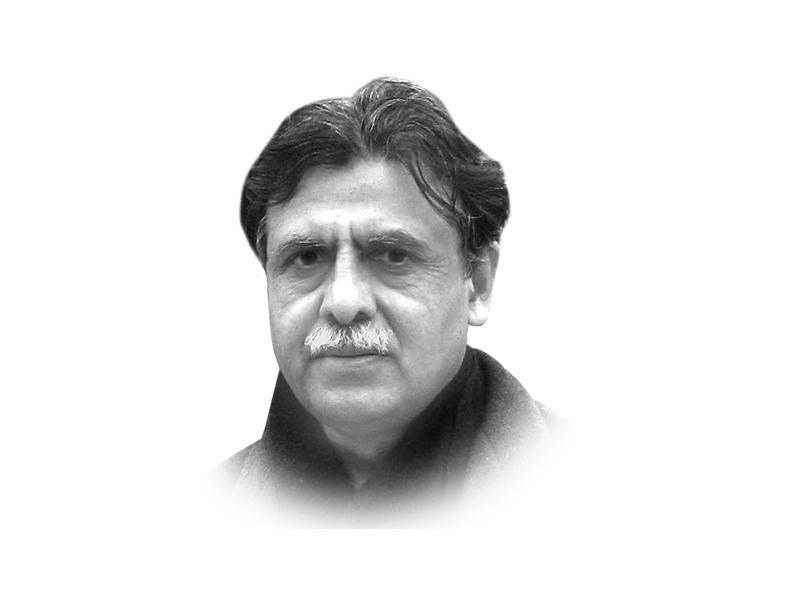
Our public sector schooling is in a dismal state and needs a complete overhaul. According to a World Bank publication, Pakistan: An Evaluation of the World Bank’s Assistance, in the late 1990s, Punjab was mired in the problem of ‘ghost’ schools with around 1,600 such schools in the province. Other surveys indicated that this number was possibly higher. Sindh is now afflicted with at least 30,000 ‘ghost’ teachers according to a host of recent reliable media reports. This is not only a management failure but a sad commentary on the system of monitoring and inspection. The situation calls for a major shake-up, which will require a visionary approach. Primary-level schooling has a crucial role to play in the development of a child’s mind. Because of this, focus must shift to teachers and the quality of teaching and learning provided. Improving the quality of teaching has to be a complete package, which should include improvements in the recruitment system, pre-service training and constant up-gradation of the teachers’ skill mix. There are around 25 million out-of-school children in the country. Teachers should be made aware of this stark reality at the time of recruitment. We need to devise a holistic plan that focuses on expanding enrolment, plugging the drop-out rate and link it with a system of incentives and reprimands that monitors the performance of teachers.
There is a need for intervention in the existing recruitment procedure that is in vogue in many parts of the country. In Punjab, recruitment to all supervisory positions has been entrusted to the public service commission, which has neutralised political influence and added to the credibility of the selection process. Replicating this countrywide may seem like a tall order, keeping in view the enormous size of the education departments in the other provinces. The task can be assigned to a credible, independent testing authority. Primary school teachers, once in place, should be exposed to regular in-service training, which should be linked to a well-defined career path like other streams of the civil service. A comprehensive recruitment policy that encompasses the above-mentioned steps, as well as other areas including improving teaching standards, providing competitive compensation etc. is the need of the hour.
When it comes to addressing other missing links that hamper the recruitment of good quality teachers, I believe that provincial bureaucracies should have no role whatsoever in this regard. During my stint in Khyber-Pakhtunkhwa, I visited a girls’ school in a remote area in upper Dir. The school had all the basic facilities, yet there was still demand for an additional room for outstation female teachers who had to commute daily from far off places. Such seemingly small details, in the long run, do hinder the recruitment of good quality teachers. If teachers cannot be assured that their basic needs will be met at work, they will not opt to join this profession.
Apart from interventions in recruitment procedures, a new paradigm that re-assesses training needs of teachers is also needed. Other than content knowledge, the manner in how instructions are imparted (pedagogy) is as important and needs special emphasis. Schoolchildren need an interactive mode of learning, more so at the primary level. Teachers should be well aware that their main task is to promote self-esteem and the cognitive integration of students, which can enhance their span of attention and thought process. Training modules for teachers need to be completely revisited. Apart from being grounded in specialty, teachers require behavioural skills to inculcate self-discipline, team spirit, tolerance and fraternity. In this regard, perhaps, the National Professional Standards for Teachers developed in 2009 by the education ministry could be implemented to improve the quality of teaching and learning in schools.
This will not only help improve learning outcomes but also help train nascent minds on meaningful and constructive lines. A two-year training module should be followed along with an upgraded salary regime for primary level teachers.
Education, as an engine of growth, needs fair treatment. We need to align our priorities afresh and make appropriate allocations for primary level education and attach a price tag to public sector higher education. Why should the taxpayer subsidise education of those who often have the ability to pay for it? Provisions should only be made for the deserving through lateral transfers but the main focus of public sector spending in education should be at the primary level if we want to bring positive reforms to the country’s education sector.
Published in The Express Tribune, March 5th, 2015.
Like Opinion & Editorial on Facebook, follow @ETOpEd on Twitter to receive all updates on all our daily pieces.













COMMENTS (2)
Comments are moderated and generally will be posted if they are on-topic and not abusive.
For more information, please see our Comments FAQ